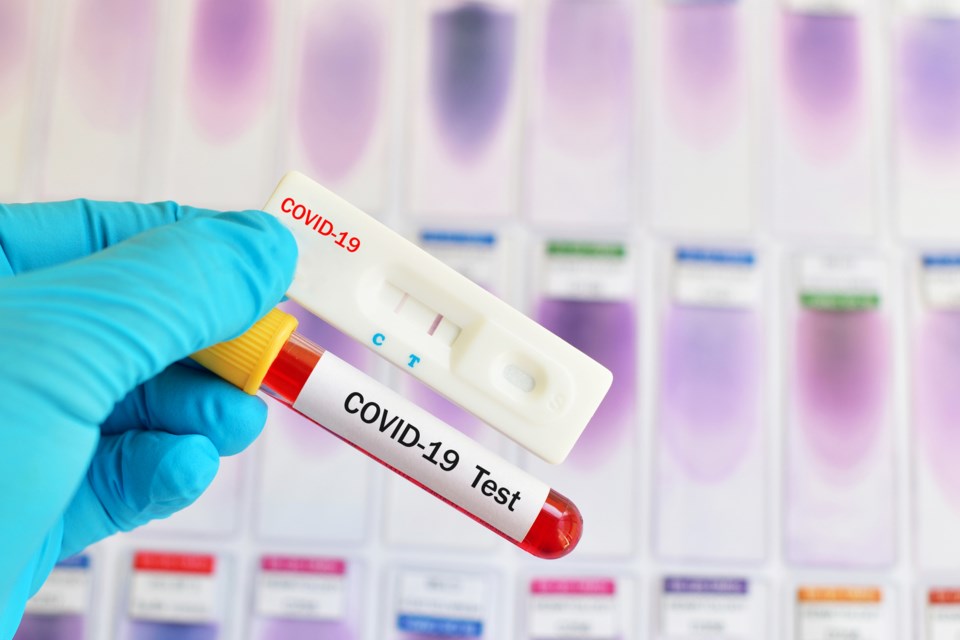The rapid rise in the number of people testing positive for the Delta variant of COVID-19 is raising alarms in Waterloo region, prompting the region’s medical officer of health to urge everyone to get vaccinated as soon as possible.
“I expect Delta will quickly become the predominant strain circulating in Waterloo Region and will mostly infect those who are not yet immunized and spread easily through groups of people who are mostly unimmunized,” Dr. Hsiu-Li Wang said at Wednesday’s Public Health Board meeting.
Wang and Region of Waterloo Chair Karen Redman have spoken with Premier Doug Ford and Ontario’s chief medical officer of health to confirm help will be available to accelerate the local vaccine rollout.
The province moved quickly to designate the region as the Delta hotspot last week, which opened up availability for second doses.
Delta, one of the variants first identified in India, is considered the most infectious COVID-19 variants to emerge from the pandemic and is thought to be 50 per cent more transmissible than the UK strain.
“They’re like little embers and they quickly spread,” Wang said. “If you get a case of Delta in a group of people that are mostly unimmunized, it’ll spread very quickly.”
Wang said the percentage of local cases that are Delta is believed to be much higher than the number of currently confirmed as Delta.
“It just reinforces that Delta will look for every opportunity and in Waterloo Region it’s the unimmunized population.”
“Don’t turn down Moderna to wait for Pfizer,” Wang said. “Both are mRNA vaccines and both are highly effective and equally effective. They can also be safely mixed.”
The region reported 72 new COVID-19 cases Wednesday, raising the number of active cases to 494 with 45 hospitalized and 15 in ICU.
The majority of confirmed B.1.617 Delta variant cases in Waterloo Region are unvaccinated individuals at 83.3 per cent. An additional 13.9 per cent were vaccinated but did not yet have full protection from the vaccine.
Only one confirmed Delta variant case has been identified as a "breakthrough case" and that person did not experience symptoms, Wang said. She explained that anyone who has received two doses of the vaccine and acquires the virus seven days after their last immunization is considered a “breakthrough case.” Most who do acquire the virus after being fully vaccinated have mild illness or no symptoms at all.
Wang said the efficacy of both Pfizer and Moderna vaccines in preventing serious illness from the Delta variant exceeds 90 per cent after two doses.
She warned that any delays to bending the curve could prevent the region from moving to Step Two of the province’s reopening plan.
“We will need to watch the next few days closely,” she said.
That news was troubling for councillors to hear.
If the region was prevented from moving to Step Two, it could “crush a lot of businesses locally,” said regional councillor Tom Galloway, urging residents to get vaccinated.
“There really is no reason now for people not to have their first dose,” he said. “We really need unvaccinated individuals to get their appointment and get their first dose so we can stem this tide.”
Conversation about how to get the word out about vaccination spawned some creative suggestions.
Coun. Barry Vlrbanovic said giant needles could be plastered on the side of the LRT trains with the message “This is your shot, Waterloo Region.”
Coun. Geoff Lorentz thought word of mouth and mail outs might work better.
“Most people don’t get the newspaper, most people don’t listen to the radio, most people don’t watch TV. We’re not getting the message out,” said Lorentz.
He suggested the region work more closely with employers to make sure all of their employees are vaccinated.
“The people that I talk to get so confused. We need to get good, factual information out. Let’s start mailing everybody,” Lorentz said. “This is an emergency in our community and we need to deal with it. I’m convinced we can beat the spread if we can spread the word”



